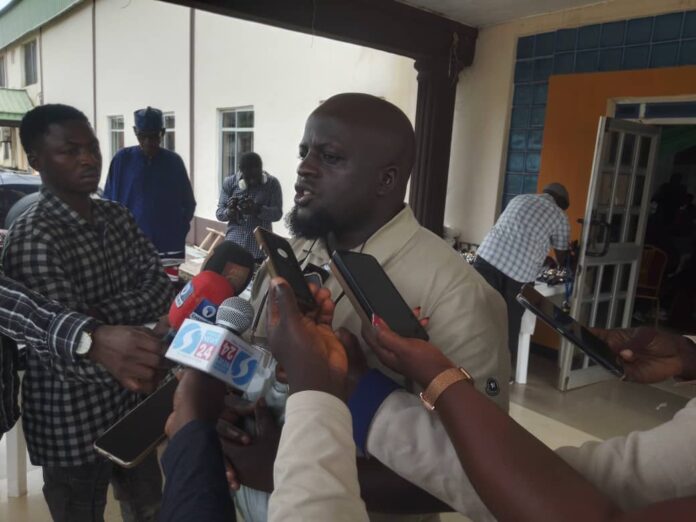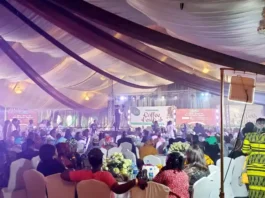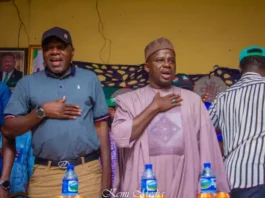Experts have raised fresh concerns over the growing relationship between drug abuse and violent crime in Plateau State, warning that the trend is eroding governance and security at the grassroots.
This was the focus of a one-day workshop themed “Impact of Drug Abuse on Local Governance” held on Tuesday, September 2nd, 2025, at Crispan Event and Suites, Jos. The program was organized by the Sound Minds Medical and Rehabilitation Initiative (SOMMRI) in collaboration with the Plateau State Ministry for Local Government and Chieftaincy Affairs, and marked the conclusion of a series that had earlier covered the Southern and Central zones of the state.
Stakeholders in attendance included members of the Plateau Youth Council (PYC), religious leaders, directors of health and social services, council secretaries, and traditional rulers. Discussions centered on the far-reaching implications of drug abuse on youth development, insecurity, and community governance.
The Drug Situation in Plateau State and Beyond
Nurse Ndak Zuhumnan Andarawus, popularly known as Nurse Kizito and Program Manager for Plateau State Malaria Eradication, who also serves as a volunteer with SOMMRI, delivered a comprehensive presentation on the state of drug use in Nigeria and Plateau.
He explained that psychoactive substances such as cocaine, tramadol, oxalopin, cortin, elok, and cannabis affect brain function, altering behavior and decision-making. Citing statistics, he said that globally, about 247 million people used psychoactive substances at least once in 2014, with 28 million suffering from drug use disorders. In Nigeria, one in every seven persons aged 15–64 is involved in drug abuse, with Plateau State ranking second only to Kano in prevalence.
He noted that in Jos, “jungles” where drugs are freely consumed now exist in almost every community, posing risks to residents. “The link between drug abuse and crime cannot be overemphasized. Many perpetrators of violent crimes confess they could not have carried out such acts without drugs,” he stressed.

Link Between Drugs and Insecurity
Kizito further explained that hard drugs embolden criminals and armed groups, wiping away their inhibitions and conscience. He recounted findings by researchers that many inmates convicted of violent crimes admitted to committing offences under the influence of drugs.
“The cries from communities about rising drug abuse, crime, and youth delinquency informed this collaboration with the Ministry for Local Government and Chieftaincy Affairs. We invited those who work directly with the grassroots—district heads, directors of primary health care and social services, and youth leaders—to find solutions together,” he added.
Expert Perspectives on Drug Abuse
Other facilitators at the workshop included Clinical Psychologist Mafai Dauboyi, who highlighted family risk factors such as poor parenting, early exposure to alcohol, and lack of supervision, while underscoring the role of protective factors like positive role models, structured activities, and strong community values.
Consultant Psychiatrist Prof. Nwoga Charles of the University of Jos grouped drugs into stimulants, depressants, hallucinogens, and alcohol, detailing their destructive health and social impacts. “Addiction is not just a health issue but a social and spiritual one. Companies profit while communities pay the price in productivity, health, and lives lost. We need treatment centers across Plateau State, not just conversations,” he urged, noting that the state currently lacks government-owned rehabilitation centers.
Governance and Community Impact
Pharmacist Gyang Samuel Ishaya, Executive Secretary of Jos North Local Government Council, described the workshop as timely, stressing that drug abuse has become the central challenge facing youth in the area. “Our problem in Jos North is not about ethnicity or religion—it is drugs. This program helps us build synergy with traditional rulers, NDLEA, and communities to confront the menace,” he said.
Rt. Hon. Aseno Amos, Speaker of the Plateau Youth Council, echoed the need for sustained awareness. “Most of those in rehabilitation centers are youths who should be in schools or at work. Drug abuse is crippling our manpower and fueling crime. We need more of these engagements, alongside job creation and private sector opportunities to keep young people productive,” he emphasized.
Faith and Traditional Leaders Weigh In
Traditional rulers and religious leaders, including representatives of CAN and JNI, decried the accessibility of harmful substances despite regulatory labels and called for synergy among councils, security agencies, and faith institutions. They further urged the revival of youth-focused activities such as debates, quizzes, and cultural events to provide healthy alternatives.
Resolutions and Way Forward
Participants unanimously called for stronger by-laws at the local government level, more powers and resources for the NDLEA, unbiased enforcement of drug-related policies, and the establishment of treatment and prevention centers in Plateau State.
The workshop concluded with the administration of questionnaires to participants, with organizers assuring that all feedback would shape ongoing policy reforms and government plans for drug prevention and rehabilitation.



